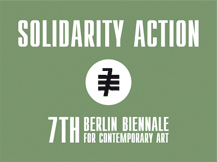Artistic production works on social archetypes, expressing their contradictions, aspirations, producing stimuli for their future. More incisive than any political document, art urges reflection and change: it is a tool of the political system or of its adversary, when it cannot be controlled. Today knowledge and entertainment workers are bringing back the concept of the common good, amplifying practices of self-organization and participatory management of the res publica, reclaiming recognition in terms of economics and welfare, the latter almost totally non-existent in Italy. These figures are the true victims of that capitalist system that, after having announced the value of immaterial labor, has not managed to provide it with any guarantee of progress and stability. The reform required to develop a new cultural policy should be based on the concept of “accessibility”, organized in three areas: spaces, public agencies, resources. Rome has too many abandoned places, while at the same time the associations, networks and individual artists often have no place in which to express themselves. The experience of working on Kollatino Underground has allowed me to understand the importance of having spaces set aside for public use. It is essential to create cultural centers in every neighborhood, starting from the outskirts, for the renewal of the territories and to encourage independent art projects. Our capital city is a creative laboratory in ferment, though the production and circulation of the arts relies on venerable structures, cathedrals in the desert. The public agencies and the system of public competitions are completely cut off from the society and the territories, and incapable of identifying their needs. Accessibility, transparency and equity in the distribution of economic resources are essential. The crisis we are going through comes from inept management of the resources we have, like the balance sheets of cultural institutions sadly entrusted to the moods of political manipulators. All this happens at the expense of artistic programming, its coherence and stability, leading to the policy of major events. The public administration has to generate virtuous tools and practices to favor private investment in the culture sector, which could be capable of supporting itself over the long term through practices of exportation and visibility. The reappropriation happens at this level, unifying intentions, territorial networks and vocational networks.
CHIARA CRUPI
Member of the experiment Kollatino Underground, an active centre dedicated to the production and diffusion of independent art and culture, occupied in Rome since 2002.


